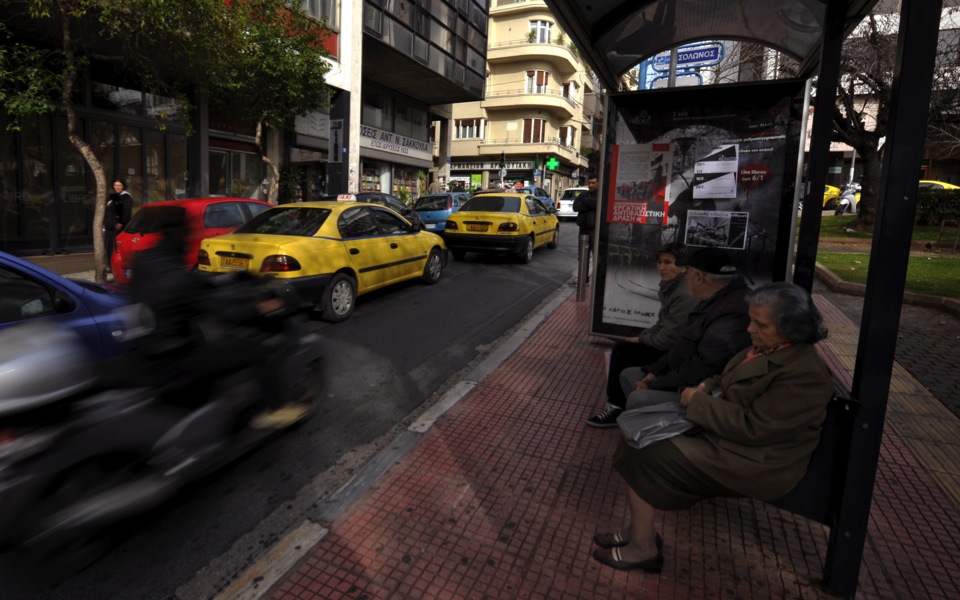Tolerance and resignation

On one side of Syngrou Avenue, the lanes leading to the center of Athens were empty but the sidewalk crowded with people walking. A red and white police ribbon barred traffic, indicating another protest in the city center. On the other side of the inner-city highway, hundreds of people stood waiting for buses trapped in the center, with no one knowing when they would come. Those waiting, those walking, were expressionless. As if they had accepted their fate that in this city, in this country, even after six years of bankruptcy and hardship, they are obliged to face hardship every day. Without end. The faces of anxiety and silence are everywhere now. On buses, in shops, in every workplace we see the gaze of those who endure because they have seen so much and yet expect to see worse. Faces of resignation.
And yet some party and union officials continue to act as they did before the Fall; as if they are fighting against some mighty enemy and not against an exhausted state, at the expense of an exhausted but tolerant population. At the bus stops, on the sidewalks, in cars stuck in traffic are workers and pensioners, students, travelers and people with doctors’ appointments. Most of them have to be someplace at a specific time, few are out for the fun of it, especially when, at the best of times, a rapidly dwindling number of buses makes the journey unpredictable. The accursed troika of creditors may be responsible for many changes in our lives, and our politicians can certainly be blamed for not averting the crisis and then for prolonging it, but it is time for every professional group, for every union, for every one of us, to ask what we have done to ease the pain of our fellow citizens, to make their lives a little easier.
Repeated protests that disrupt lives without achieving much else are not the greatest problem that the Greeks face but highlight the dead end of our politics, our economy and our society. The myth that every arbitrary action could be justified with the self-serving proclamation that it was for the public good should have been swept away in the years of our economic crash-landing. But it appears that in our politics, in our education system, in our streets, there has been no adjustment; small groups can still impose their will on the whole without caring for the cost. In government is a party that invested successfully in tireless activism and does not have the will to change, even as it now has responsibility for the whole of society and not just its own members. It faces a growing wave of protests organized by parties and groups that have adopted its own tactics. Citizens know that whatever plans they make will be disrupted by the plans of others.
It is intriguing to note the tolerance which most Greeks show toward both the mistakes of the adjustment programs and their daily travails. In the past, this was based on acknowledging the right to protest; today it betrays exhaustion. It leads to resignation and apathy. And as long as the state is unable or unwilling to protect the whole, each citizen – whether a bus passenger, a pedestrian, a pensioner or member of Parliament – will have to stand alone as others impose their will on him.



